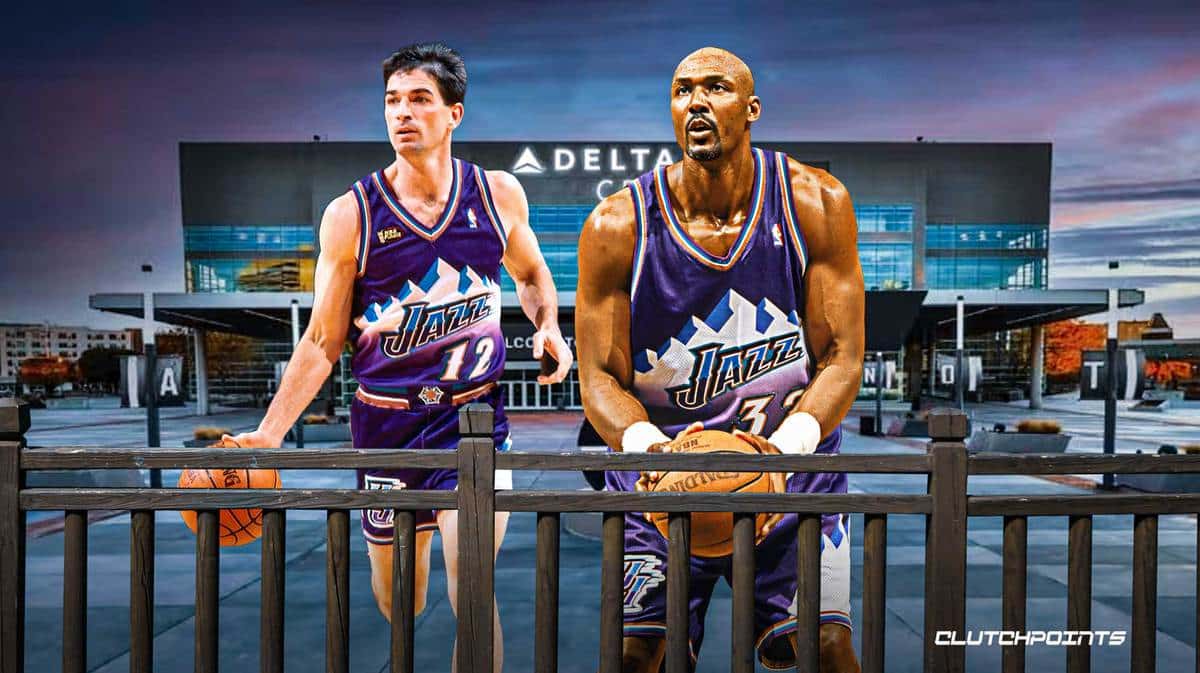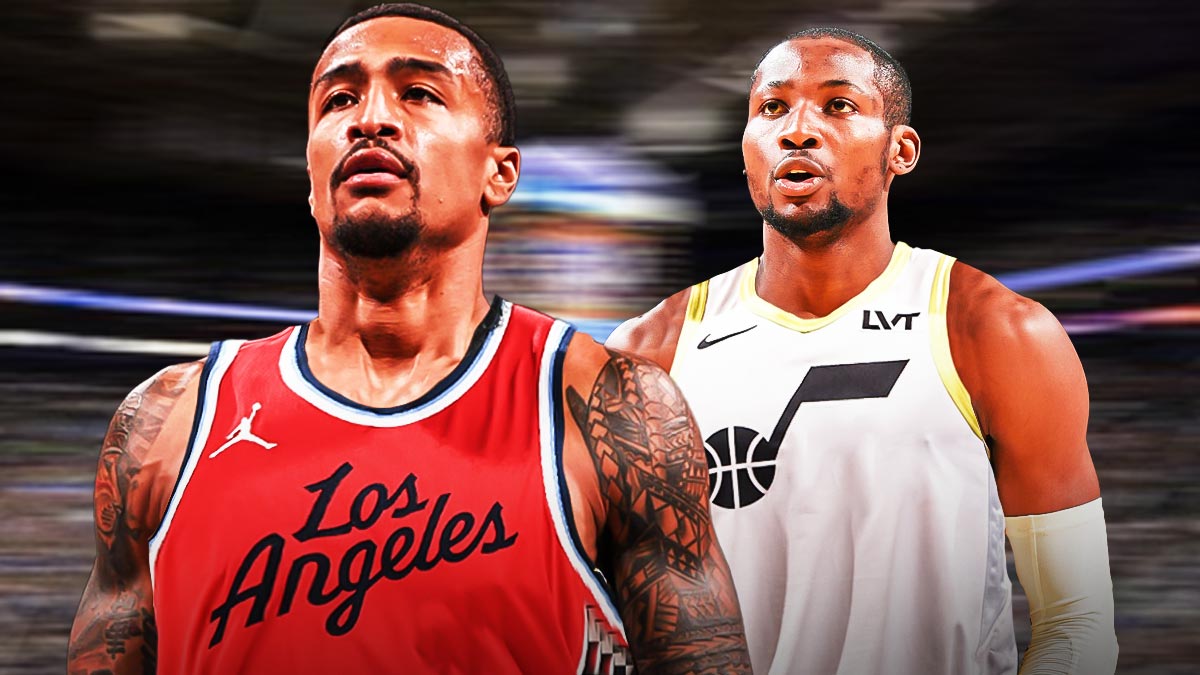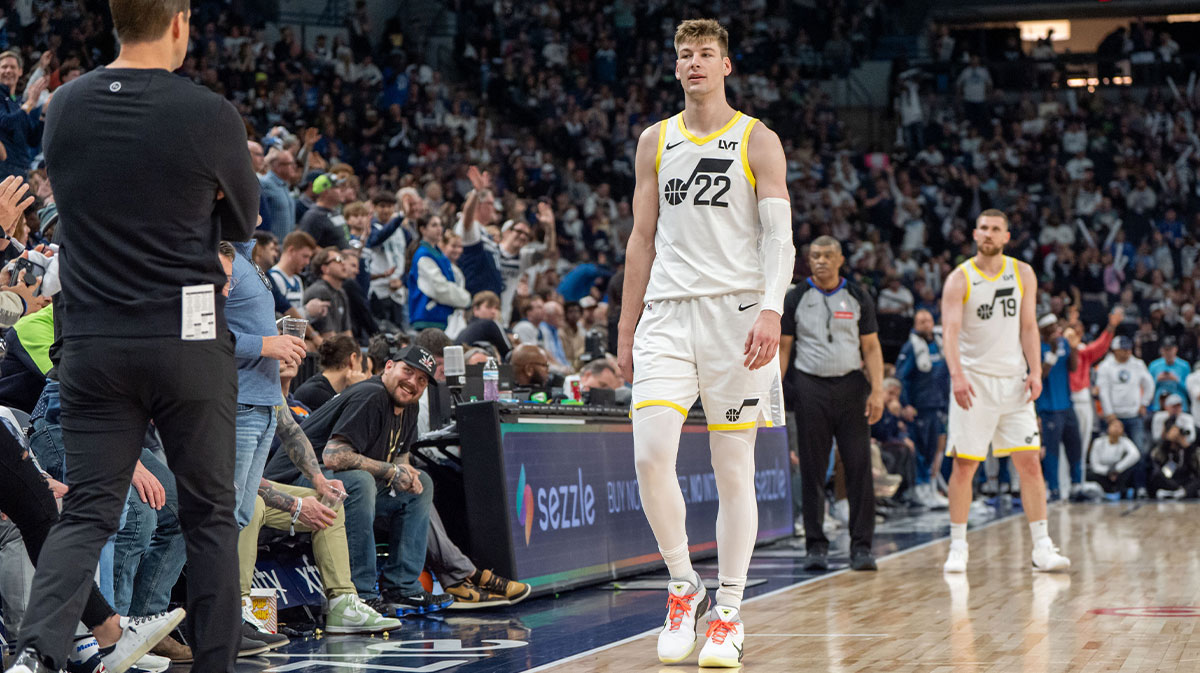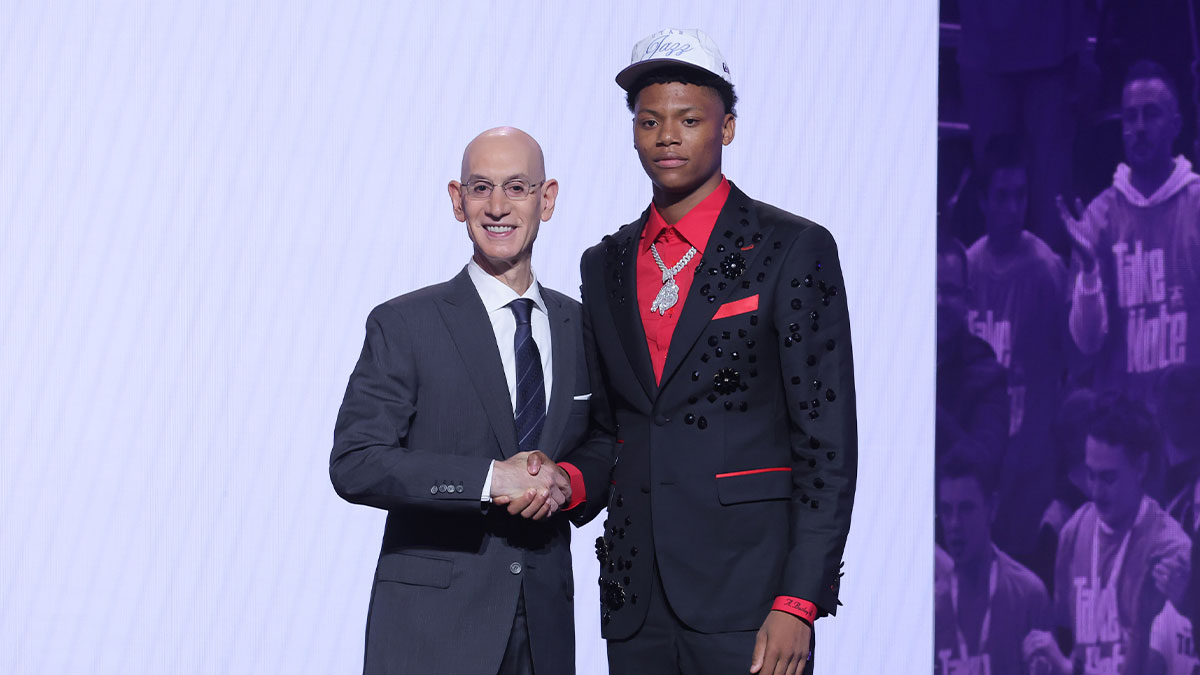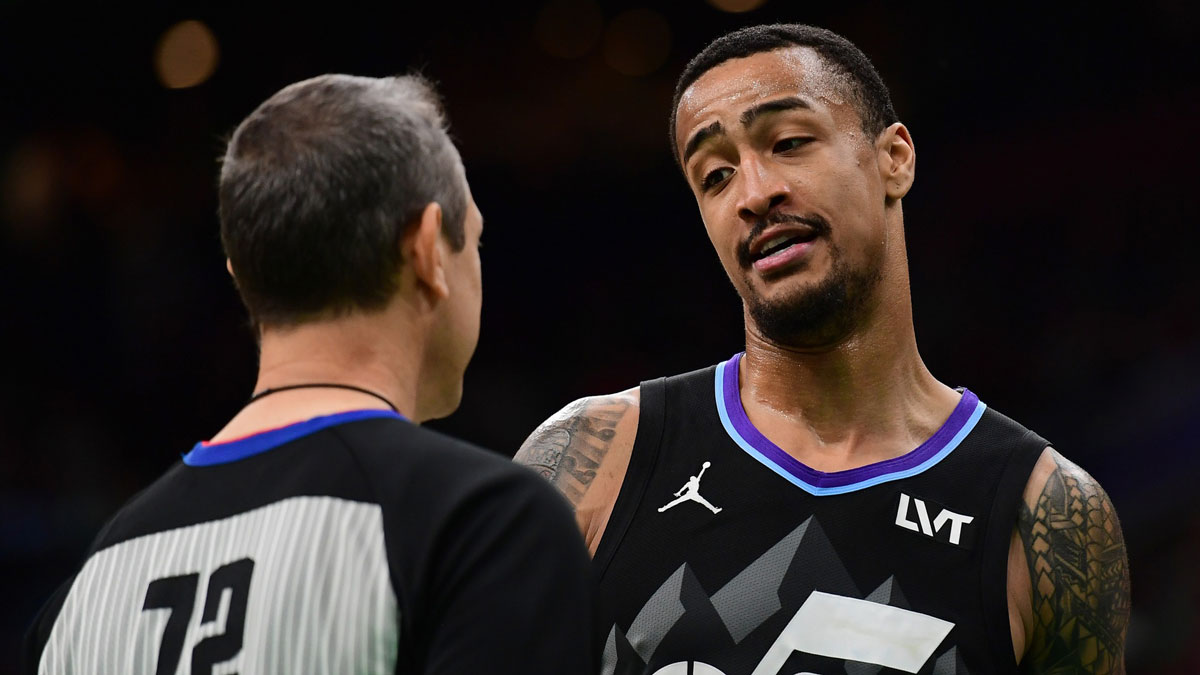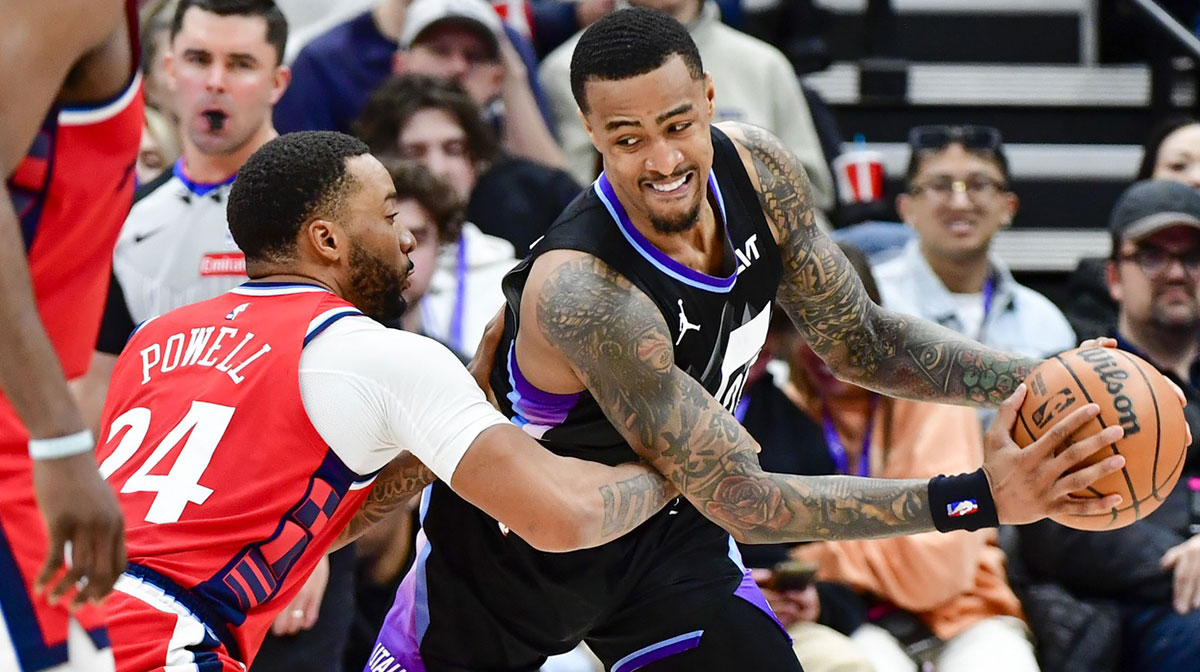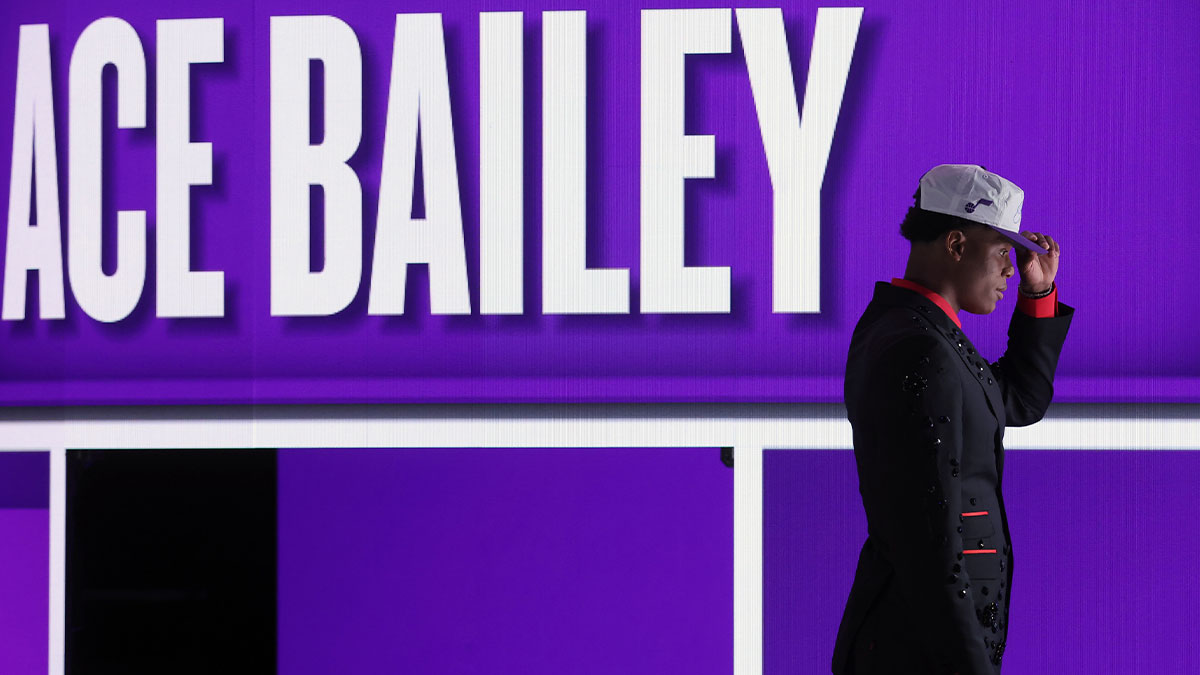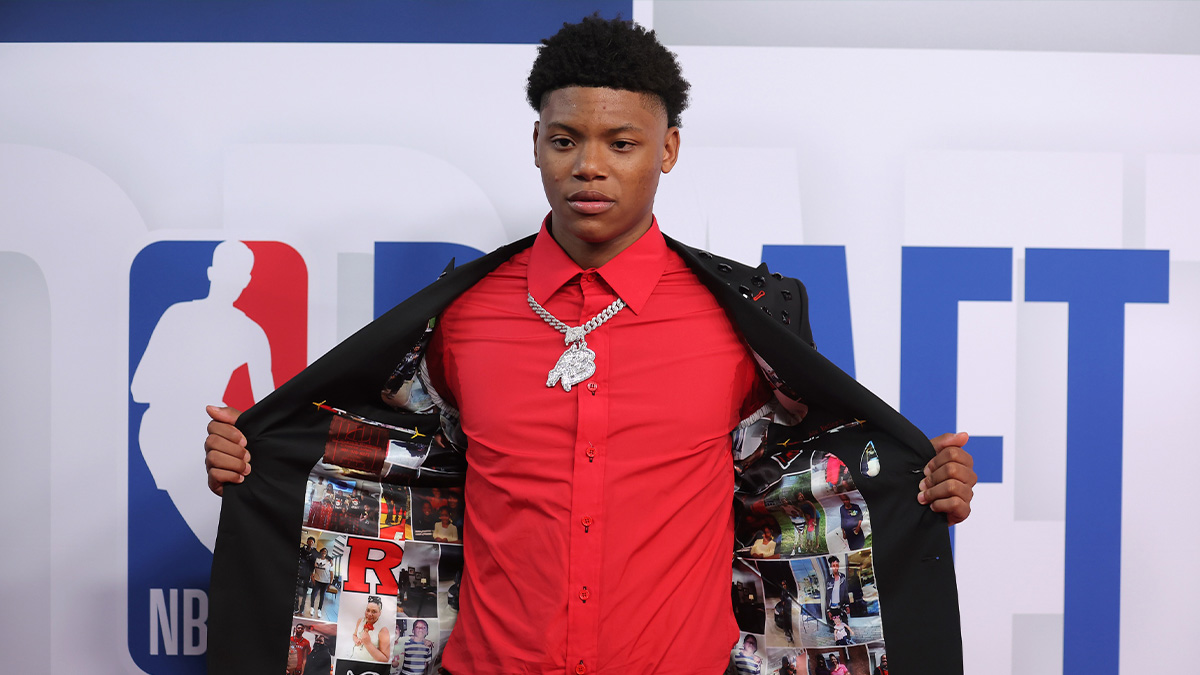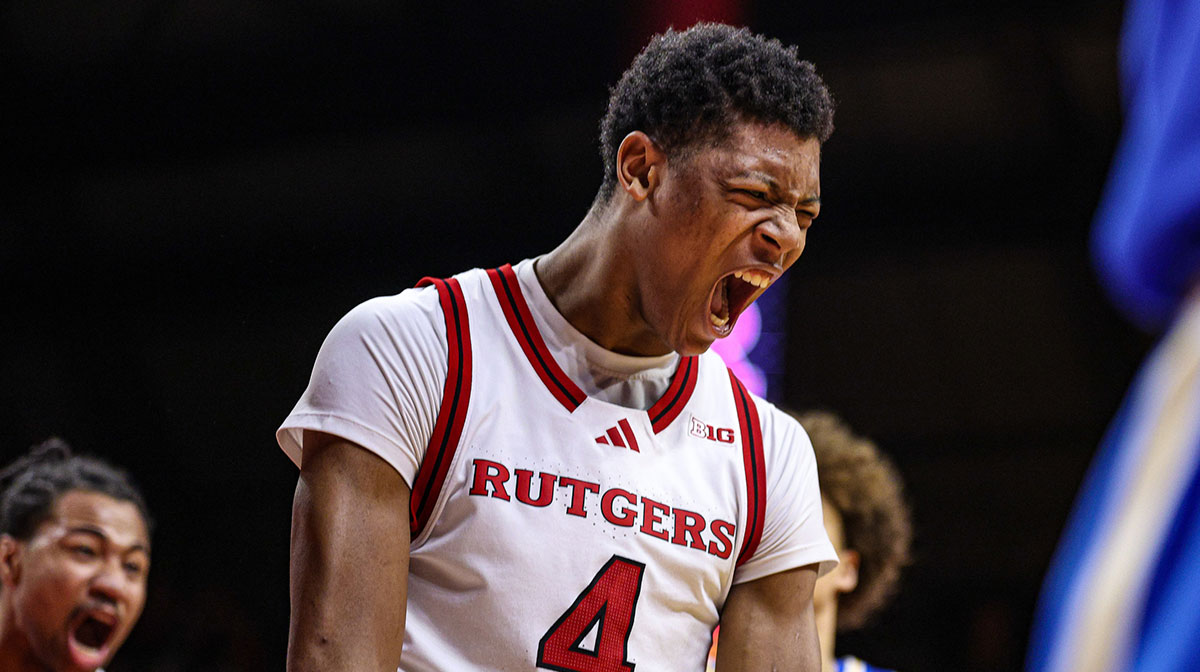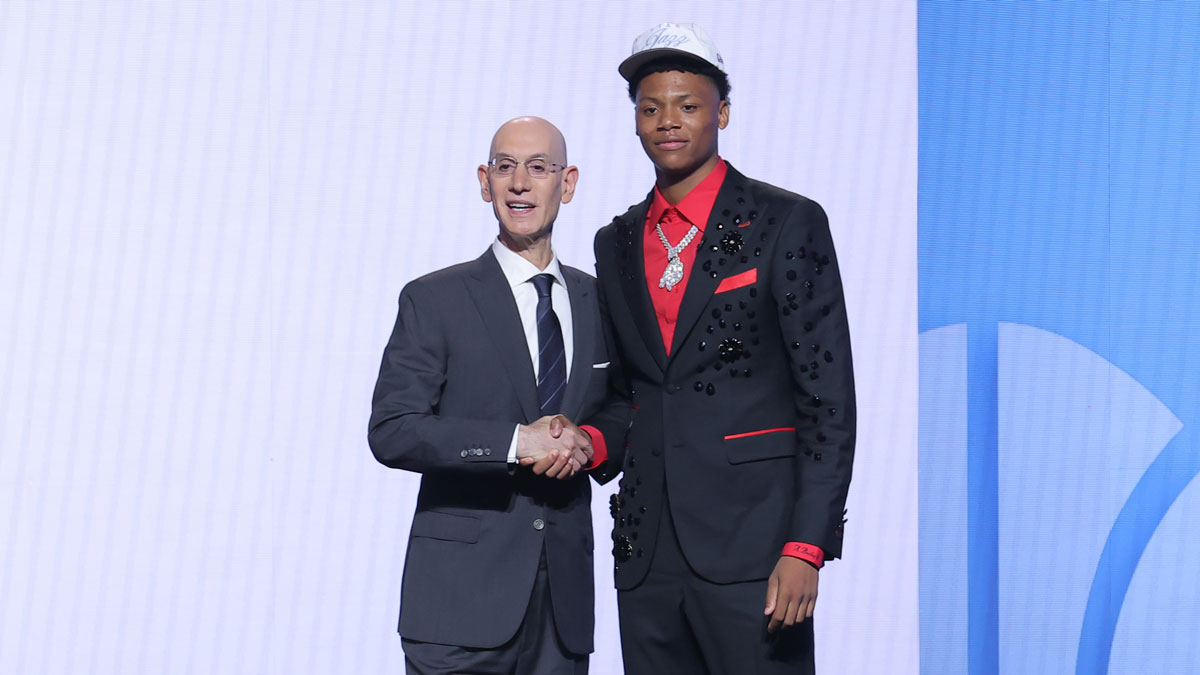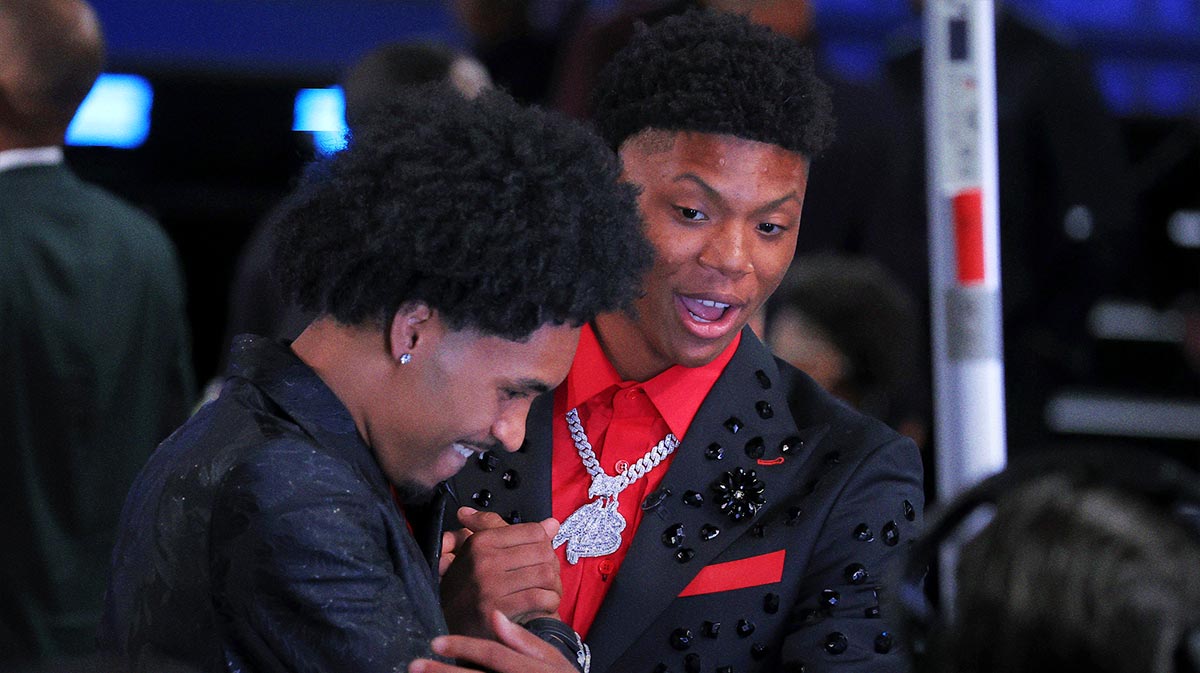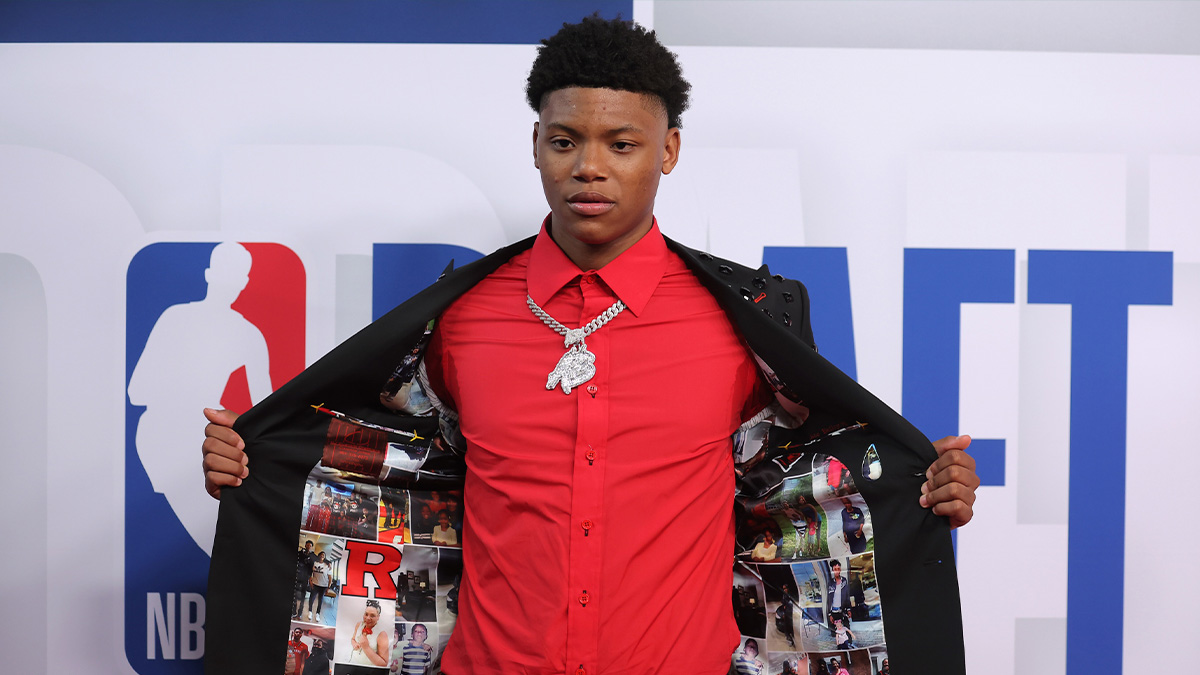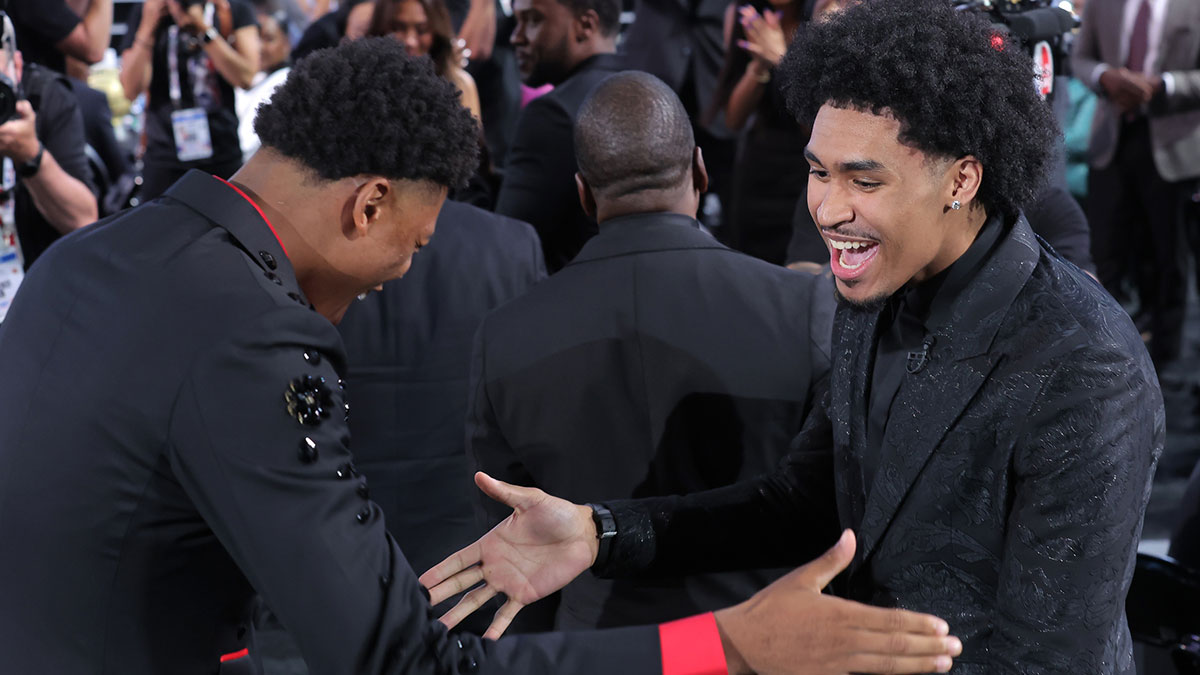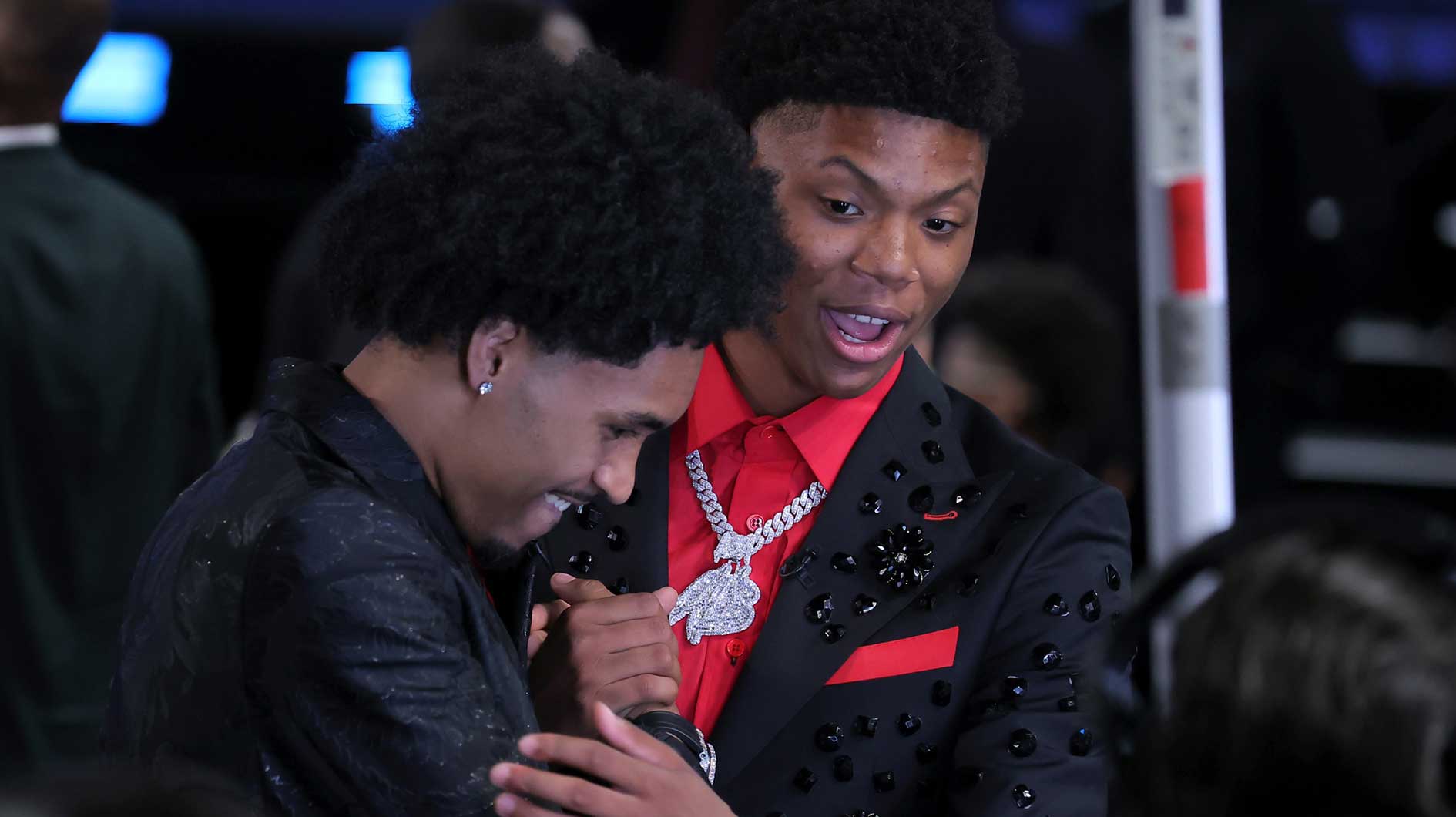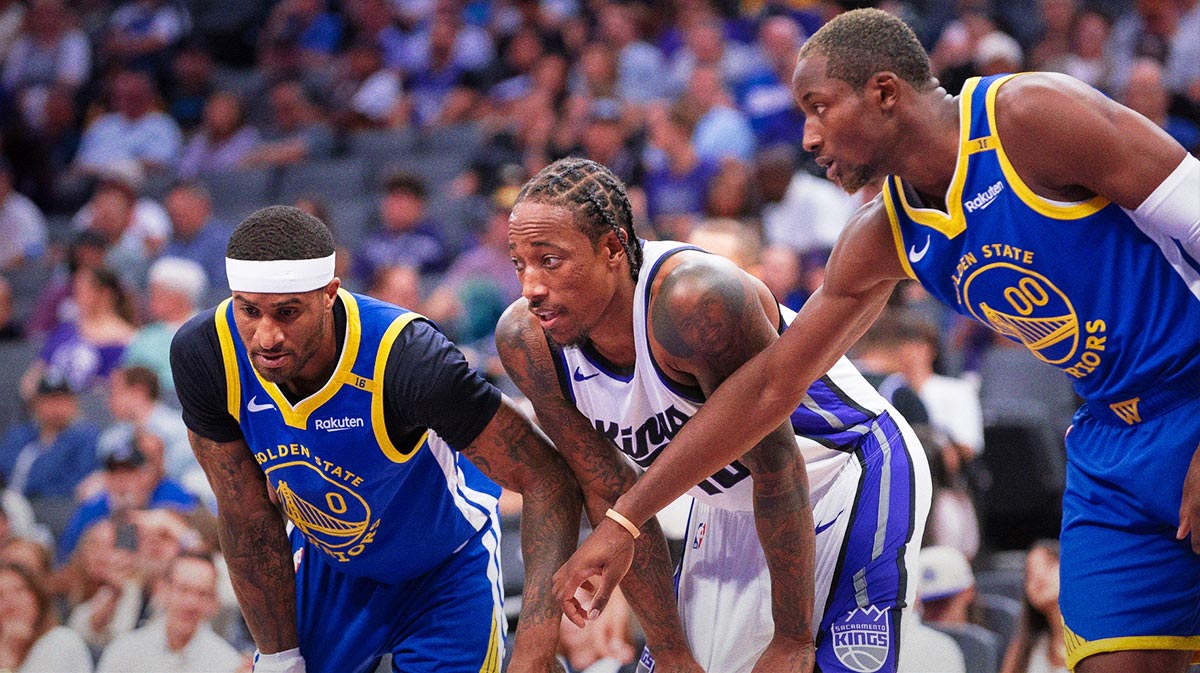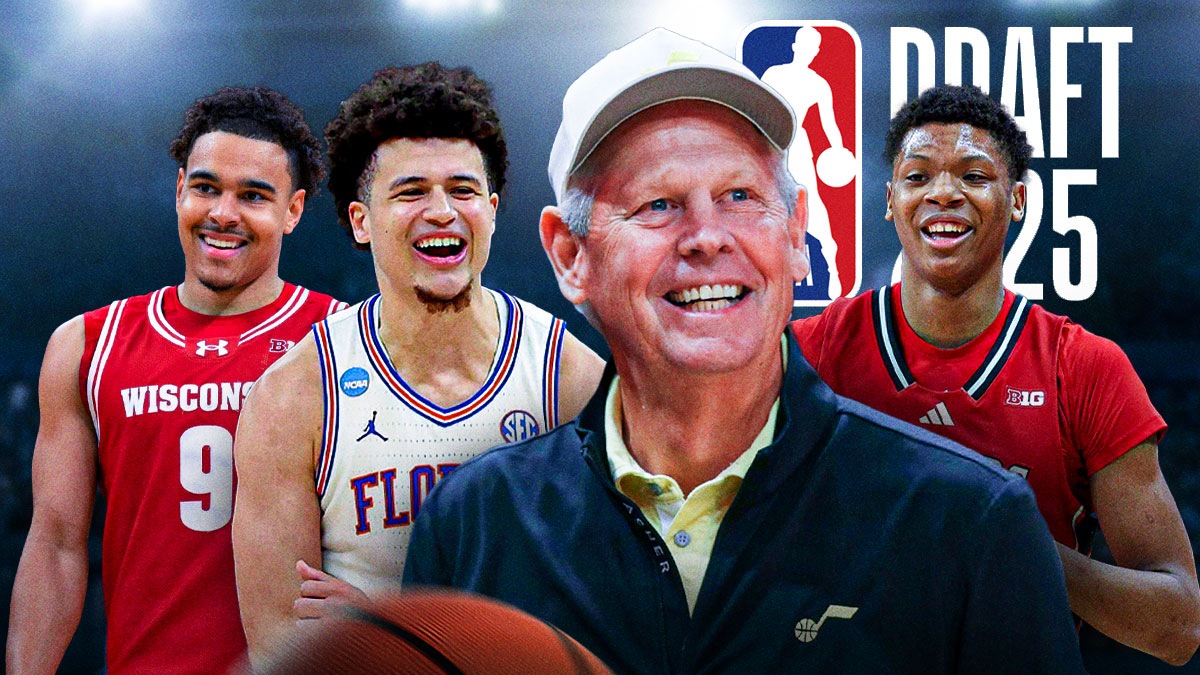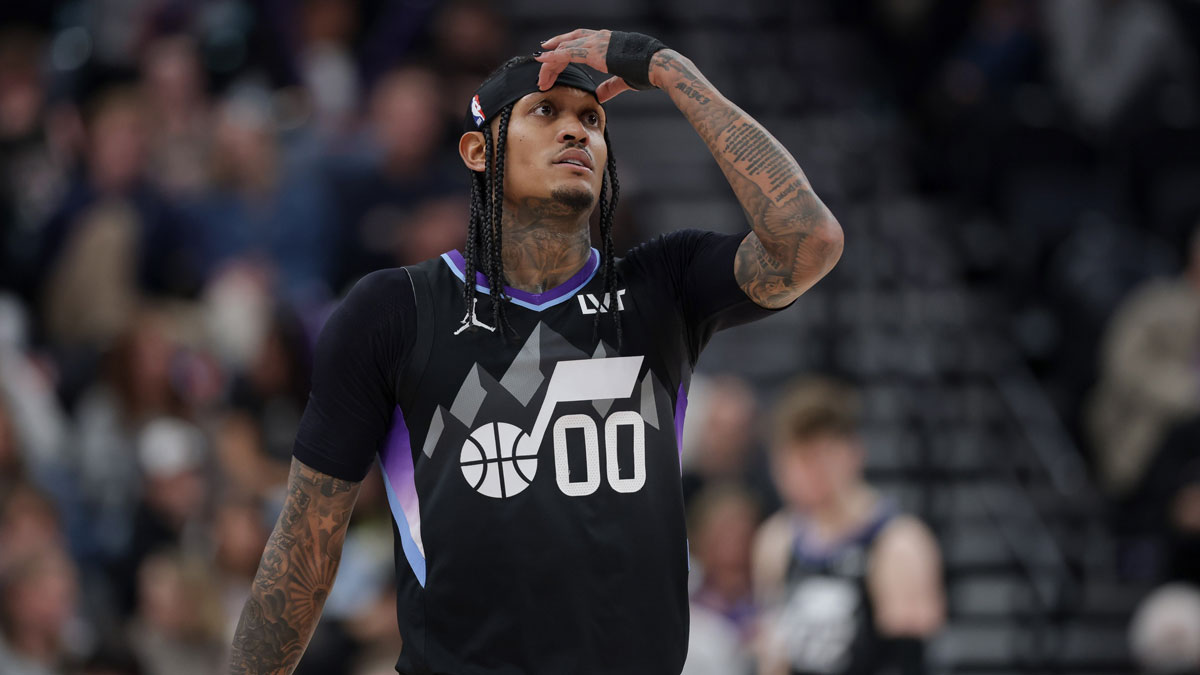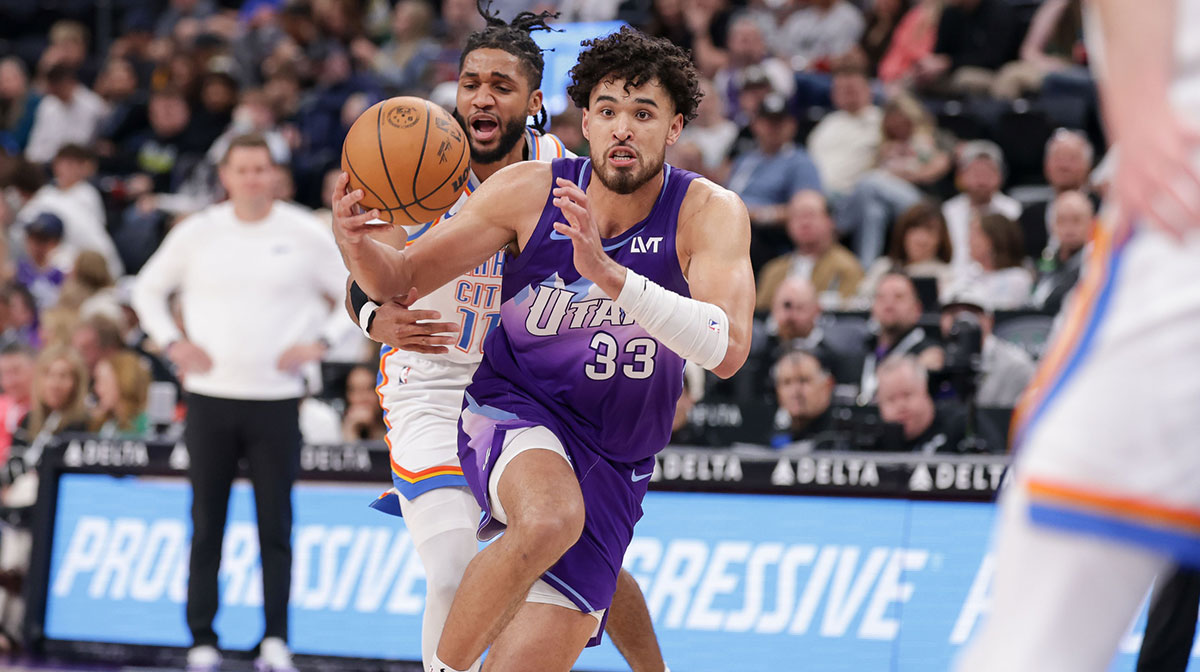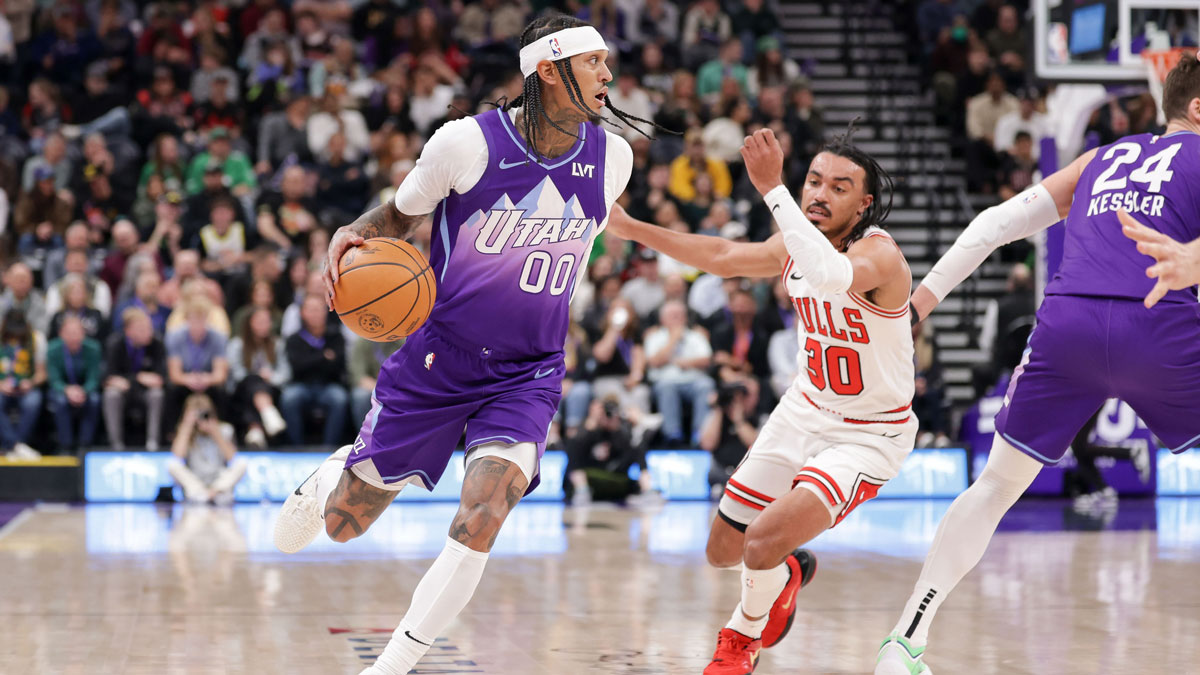The Utah Jazz might not have ever achieved the ultimate success, but they've nonetheless made plenty of great selections on draft night. Those picks have helped them put together a number of quality teams – teams which were able to at least challenge for a championship, even if they couldn't go all the way. The team which most notably did that was led by the best two draft picks, and best players, in franchise history by some way, but there have been numerous other good pick-ups along the way – these are the ten best of them.
10. Thurl Bailey (Pick 7, 1983)
Nine seasons into their existence, the Jazz were still yet to make the playoffs, having missed out five times in New Orleans and then four times in Utah. Once Thurl Bailey arrived in 1983, that all changed. Of course, that wasn't all to do with him, or even that much to do with him at all given he had a relatively inconspicuous in the league, but he would go on to play more than eight seasons with the team, and they made the playoffs in each and every one of those. At his best he was a 20 points per game scorer on nearly 50% shooting coming predominantly off the bench behind Malone, but his productivity began to dwindle after a few years and he was shipped off to the Timberwolves partway through the 1991-92 season.
9. Andrei Kirilenko (Pick 24, 1999)
Andrei Kirilenko was a great player for the Jazz whichever way you look at it, but when you factor in the fact that he was picked at number 24 in the 1999, that selection only gets better. After Malone and Stockton left he became the face of the franchise, and his ability to stuff the stats sheet like few others made him one of the more exciting players in the league – particularly for lovers of stats. In 2003, he became just the second player in league history to compile a 5×5 game – at least five points, rebounds, assists, steals and blocks – on multiple occasions. In all, Kirilenko spent ten seasons in Utah.
8. Gordon Hayward (Pick 9, 2010)
During a difficult period for the Jazz, Hayward was one of the few shining lights, with the baby-faced pick 9 improving bit by bit by bit to the point where he was an All-Star in his seventh season with the Jazz. That year he averaged 21.9 points while shooting 47.1% from the field and 39.8% from three-point range, while he also grabbed 5.4 boards and 3.5 assists. Unfortunately, that was all she wrote for his career in Utah, as he picked up his free agency option and joined the Celtics. We all remember how that went – he broke his leg in the opening minutes of his first game with his new team, and though he's still had his moments, he hasn't again reached the heights of his final year in Utah.
7. Deron Williams (Pick 3, 2005)
Drafted out of Illinois with the third pick in the 2005 draft, Deron Williams wasted no time showcasing his talent for the Jazz. A solid first season yielded him a spot on the All-NBA Rookie First Team, and he improved significantly in his second to average 16.2 points and 9.3 assists. By his third he was one of the better point guards in the league, and in that season and the next three he averaged at least 18.7 points and 9.7 assists per game. He was twice voted to the All-NBA Second Team during his tenure in Utah and was a two-time All-Star, too, before he headed to the Nets partway through the 2010-11 season.
6. Rudy Gobert (Pick 27, 2013)
Rudy Gobert was a speculative pick, as many at number 27 in the draft are, and for a time it looked as though it wouldn't necessarily pay off. The lanky Frenchman had some tools – most notably a 7'9″ wingspan – but his clumsy offensive game for a long time made him something of a liability at that end of the floor. But by his fourth season, he had well and truly proved that he could make it work despite his limitations at the offensive end of the floor, and more than compensate for any shortcomings at the other end. He played nine seasons with the team before joining the Timberwolves, in that time winning the Defensive Player of the Year Award three times, making six All-Defensive First Teams, and was a 3x All-Star.
5. Donovan Mitchell (Pick 13, 2017)
Just as Gobert was beginning to establish himself as a legitimately good player and the best defender in the league, he was joined by an athletic young guard by the name of Donovan Mitchell. At pick 13, Mitchell wasn't exactly the most highly touted player coming out of the 2017 draft, but he wasted no time proving that he should have gone higher, averaging 20.5 points, 3.7 rebounds and 3.7 assists in his first year. From there, he only got better, and in 2020 made his first of three consecutive All-Star appearances. His explosive scoring ability combined with a continually developing feel for the game and playmaking nous to make him one of the more dangerous guards in the league, and never was that more evident than during his remarkable tussle with Jamal Murray in their seven-game first round playoff series against Denver – a series in which Mitchell three times scored 44 points or more and twice over 50.
4. Mark Eaton (Pick 72, 1982)
Mark Eaton is far from the best player on this list, and plenty of the players you've already read about have him covered on pure talent pretty comfortably. But as a draft pick, this was about as inspired as they get. Eaton went at pick 72 (!!) in the 1982 draft, but despite that almost offensively low selection, the 7'4″ center would go on to play 875 games for the Jazz over the course of 11 seasons. His offensive limitations were clear, but defensively he was elite – he averaged at least 3.4 blocks in each of his first seven seasons, including an incredible 5.6 in 1984-85. By the end of his career he had five NBA All-Defensive Team appearances to his name, had racked up a couple of Defensive Player of the Year Awards, and ultimately had his jersey retired by the franchise – not bad for a pick 72.
3. Paul Millsap (Pick 47, 2006)
While we're on the topic of elite late draft selections, let's talk Paul Millsap. Taken all the way down at pick 47 in 2006, the versatile forward took a while to get going and two seasons into his NBA life didn't necessarily look like having the illustrious career which he's gone on to have. He improved significantly in his third year, in which he averaged more than 30 minutes, 13.5 points on 53.1% shooting, 8.6 rebounds and 1.8 assists. He continued to put together similar, if not superior, numbers over the next few seasons, before moving to Atlanta in 2013. Unfortunately for Utah his career took off even further there, and he went on to be selected for the All-Star team four seasons in a row.
2. John Stockton (Pick 16, 1984)
The top two on this list was never going to be in any doubt. After their second Conference Finals loss in three years, they drafted John Stockton with the 16th pick in 1984. It wasn't a selection which many expected, and no one could have predicted that by the end of his career, the unassuming point guard would be immortalised in trophy form outside the Delta Center. Stockton put together an historic 19-year career in Utah, helping the Jazz to consistently compete for a title as he ran the floor like few others in history. By the conclusion of his career he had accumulated a statistically anomalous number of assists, a category he still leads by a country mile today.
1. Karl Malone (Pick 13, 1985)
Stockton's partner in crime was Karl Malone, a man who benefited greatly from his facilitatory friend's ability to deliver the ball on time, and on target. Off-field behaviors aside, Malone's career on the court was undeniable. In his 18 seasons in Utah he was a 14x All-Star, 2x league MVP, 11x All-NBA First Team member, and 3x NBA All-Defensive First Team member. His longevity and productivity mean he currently finds himself in third place in NBA history for total points scored, and the only thing really missing from his resume is – like Stockton – an NBA championship. Despite that hole in his career, however, this was a selection which changed the face of the franchise, and alongside that of Stockton is clearly the best in Jazz history.
